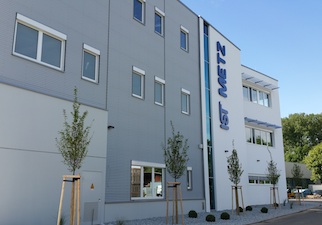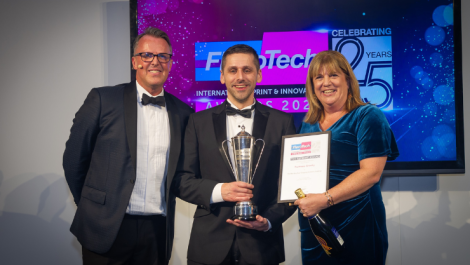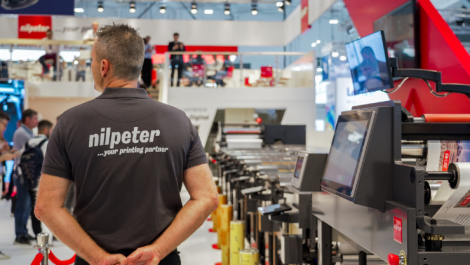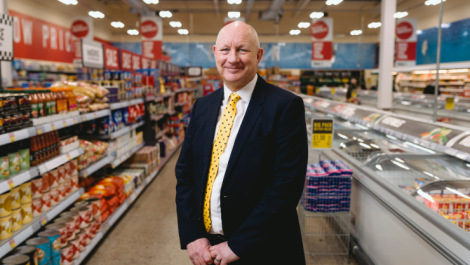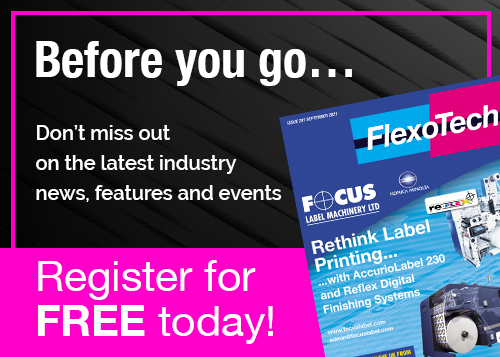The seventh edition of UV Days took place in Nürtingen at the IST Metz GmbH headquarters
For the seventh time, IST Metz GmbH celebrated all things UV curing during its open house event held on 15 to 18 June, and 800 visitors and 35 partners gathered under the theme ‘UV Rocks’. Neel Madsen visited the German manufacturer as it opened its doors to an international audience.
Held in a newly built, modern facility as yet unused for production, the IST UV Days kicked off on 15 June at the company’s headquarters in Nürtingen, near Stuttgart, in Germany. The main theme of the event focused on UV and LED UV curing with printing demonstrations showing the versatility of both technologies for a variety of markets, along with lectures on technology trends and design trends. This was complemented by an exhibition that included a number of the company’s partners from both the offset and flexo sectors.
Since the first UV Days were held in 2002, visitor numbers have grown with each biannual edition, and were up from 600 in 2013 to 800 this year. The record-breaking event attracted attendees from all over the world. ‘With around 2000 square metres of exhibition space in our new building, we had of course the advantage of having more space this year,’ said managing director Dirk Jägers. ‘Thus we were able to assign the popular exhibition stands to more companies.’
Exhibitors and partners at the event included Actega Coatings and Sealants, DP Lenticular Ltd, Flint Group, Gallus, INX International, Integration Technology Ltd, Novamelt, Kocher+Beck, Siegwerk, Sun Chemical, Toyo Ink Arets and Zeller+Gmelin.
In cooperation with the German print magazine, Deutscher Drucker, a display area was dedicated to presenting the Print Stars Award nominees and winners. IST’s print sample from the 2013 UV Days was on display as it won gold in the ‘Crossmedia packaging as customer present’ category.
UV curing in practice
The company prides itself on its practical approach to explaining UV curing. Mr Jägers said, ‘We try to be objective and offer information not just promotional content at the UV Days. The aim is to educate and show the pros and cons of UV versus LED UV curing. These days, an attractive printed product has to have a harmonious overall concept to appeal to the consumer, especially in the more exclusive business segment. Printed products from our company demonstrate the latest possibilities.’
The star of the show was a guitar printed in two parts on folding cartonboard on the in-house Heidelberg and finished on an MGI JETVarnish press. Folded to present a 3D guitar, the design included space in the head for a 3D printed holder for smartphones. Once a dedicated ‘UV Rocks’ app has been downloaded, the mobile can be inserted and the guitar played through a game on the app. Another function is that of a loudspeaker; the hollow guitar body with a laser-cut pattern amplifies the sound from the mobile device.
The body of the guitar was printed on Avanta Image 330 gsm cartonboard on the sheetfed Speedmaster CD 102-7 LX press. Magenta, yellow and black were printed in the first three units. This was followed by an iriodin varnish and a sparkling varnish to create shimmering effects. In the seventh unit, a wood look was added using a matrix, and this was further intensified in a UV flexo station with gloss varnishing. The process inks were LED UV, while the finishes were all created using UV varnishes, demonstrating the respective strengths of each drying technology.
The demo on the MGI unit added tactile and silver foil effects to the neck, running the iFOIL solution inline with the JETvarnish 3D digital inkjet spot UV coater.

LED demonstrated
For flexo, a press demonstration showed LED UV curing in label printing with the aim of presenting the advantages and practical use of this process. In collaboration with its British partner company, Integration Technology Ltd, IST supplies both traditional UV curing and LED UV curing systems. Its LED-prepared solution was shown on a narrow web flexo press with the watercooled LED UV units achieving an output of up to 12 W/cm2.
‘When looking at this value, particular attention should be paid to the fact that the output is in wavelength range of 385 nm,’ said Stefan Feil, director of technical marketing. ‘The output here should be rated significantly higher than for a comparable LED UV system which operates in the established range of 395 nm. In addition to a better output yield, the shorter wavelength design opens up the benefits of formulating suitable inks and varnishes.’
He continued, ‘The use of LED technology is within reach for narrow web printing. As soon as efficient operation as well as technical feasibility can be guaranteed, LED is sure to achieve a breakthrough where it makes sense. The benefits of hybrid solutions will play out. With the LED-prepared concept, printing houses are ready and waiting for this moment.’
The company predicts that by 2020, LED UV will have grown to a market share of 30% and it is keen to emphasise that it is ready for this growth and presents a one-stop shop for both LED UV and UV curing solutions for industries beyond printing.
Another development for the next generation of the MBS product range is a Smart Control system user interface. This can be integrated into the control systems of most common types of printing presses and will gradually become available for all systems made by IST.
Expansion
Built on the site of an old factory, new building was designed to the latest standards of energy efficiency. A photovoltaic array on the roof was commissioned back in January. The solar electricity obtained as a result was used for the remaining construction work and will also supply the plant with electricity for the future.
After the exhibition, subsidiaries S1 Optics GmbH and gerhard metz metallbau GmbH will move into the three-storey building to increase their production area. IST Metz GmbH will also be making use of the space, which measures approximately 4900 square metres in total.
Following a busy four days, Mr Jägers declared his satisfaction with the event. He concluded, ‘We have once again shown at UV DAYS how much potential UV technology offers in combination with new product ideas. Lamp or LED? Which technology is the better choice depends on the respective application. UV allows for high class finishing in packaging printing. There the lamp technology will remain useful. In commercial printing less finishing effects are required, but here the advantage of immediate processing is a strength UV also offers. A retrofitting to LED technology is conceivable in this area. What is certain above all is that the market for UV is growing, and along with it UV Days which we will host again in 2017.’



